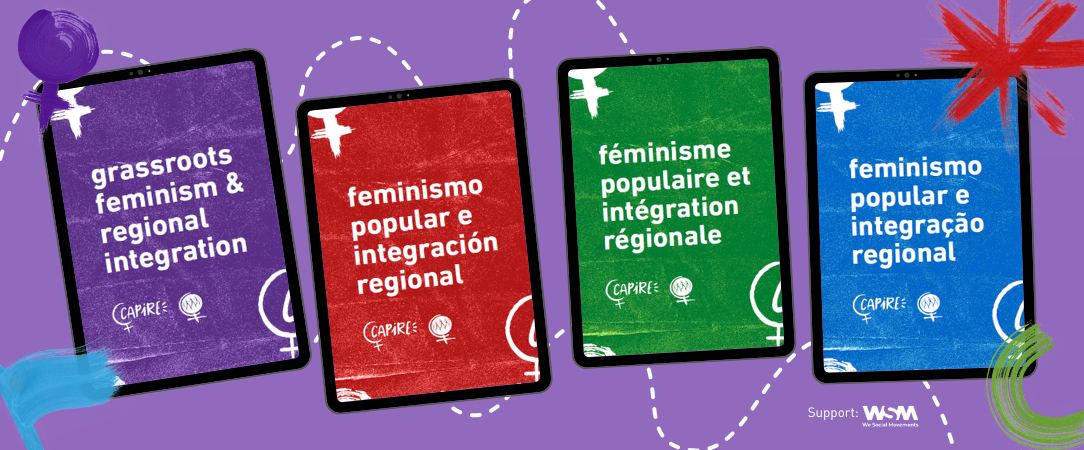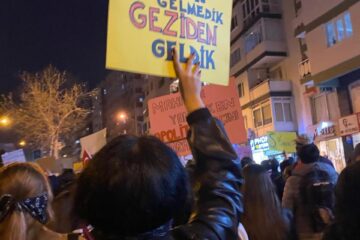This digital publication brings together feminist formulations about building internationalism and the fundamental participation of women fighters in the processes of integration of the peoples.
In never-before-published interviews, Alejandra Laprea and Norma Cacho address the organization of the World March of Women in the Americas and the movement’s international challenges. The texts by Alejandra Angriman, Elpidia Moreno, and Karin Nansen are edited versions of speeches they delivered on the webinar “Feminism and Regional Integration,” held in November 2023. The texts by Ana Priscila Alves and Irene León feature the contributions they provided at the 3rd Dilemmas of Humanity Conference in their regional and international stages, in September and October 2023. The writing by our dear sister Nalu Faria, originally published in 2021, was chosen to open our publication, keeping her memory alive, as well as her legacy and her accurate views on the strategies toward building grassroots feminism.

Especially in Latin America and the Caribbean, we have been facing a history of imperialist offensives that, for more than five centuries, have been imposing different forms of violence on our territories and ways of living. In current times, these offensives are taken through conservative, neoliberal, and fascist campaigns and forces aligned with projects of subordination, exploitation, extractivism—projects ordered by states from the global North and transnational companies that accumulate more power than states.
Meanwhile, we see an abundance of struggles across the continent, with one thing in common: women are on the front lines, coordinating efforts, making denunciations, sustaining life, the community, and the movement. In everyday forms of resistance, they see the connections between patriarchy, racism, and neoliberal capitalism. Challenging this authoritarian model, they propose a grassroots, anti-racist, diverse feminism that is deeply roted in their territories while also being aware of the experiences of neighboring places, exercising, through internationalism, the principle of unity in diversity, rejecting the competition between historically violent and colonial national borders.
Latin American and Caribbean grassroots movements build collective possibilities, even as they face contexts of repression, authoritarianism, and austerity. They do it with creativity, investing in building broad political processes, promoting anti-systemic changes, deepening democracy and a popular sovereignty that encompasses different dimensions. In this sense, we defend regional integration as a project that involves all areas of life, including communications, culture, and the economy, guided by food, energy, and technological sovereignty. While regional integration advances with progressive governments—which are the product of the grassroots struggle and mobilization in each country—, it becomes stronger especially through the action of the peoples.
For the World March of Women Americas, regional integration brings back memories of key moments of the continental struggle that still find an echo today, including the grassroots victory against the FTAA. It also points toward the future paths toward strengthening alliances, deepening our strategic view of feminist economy and the sustainability of life, and the building of a broad sector of international feminist movements that is militant, diverse, and continuously moving.
We hope this publication can provide contributions for the reflections of sisters in our national coordinating boards and ally organizations. Meanwhile, we also aim to contribute to fundamental actions in the calendar of struggles ahead: the Latin American and Caribbean Week of Peoples’ Integration, to be held in Foz do Iguaçu February 22-24, 2024; and the 6th International Action of the WMW, which will take place throughout 2025 with the slogan “We will continue to march against war and capital, for popular sovereignties and good living,” which guides us today as a movement toward the future.




